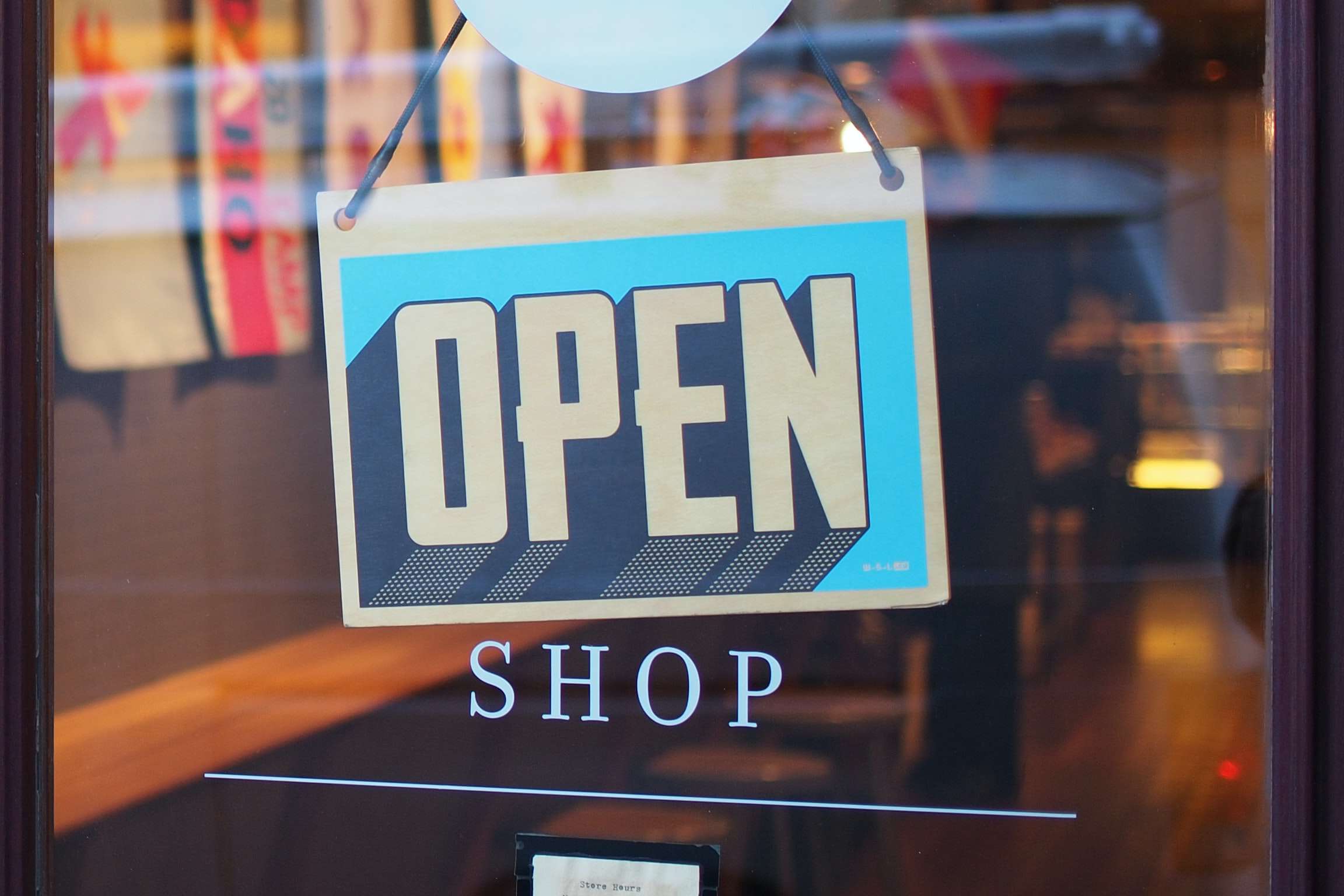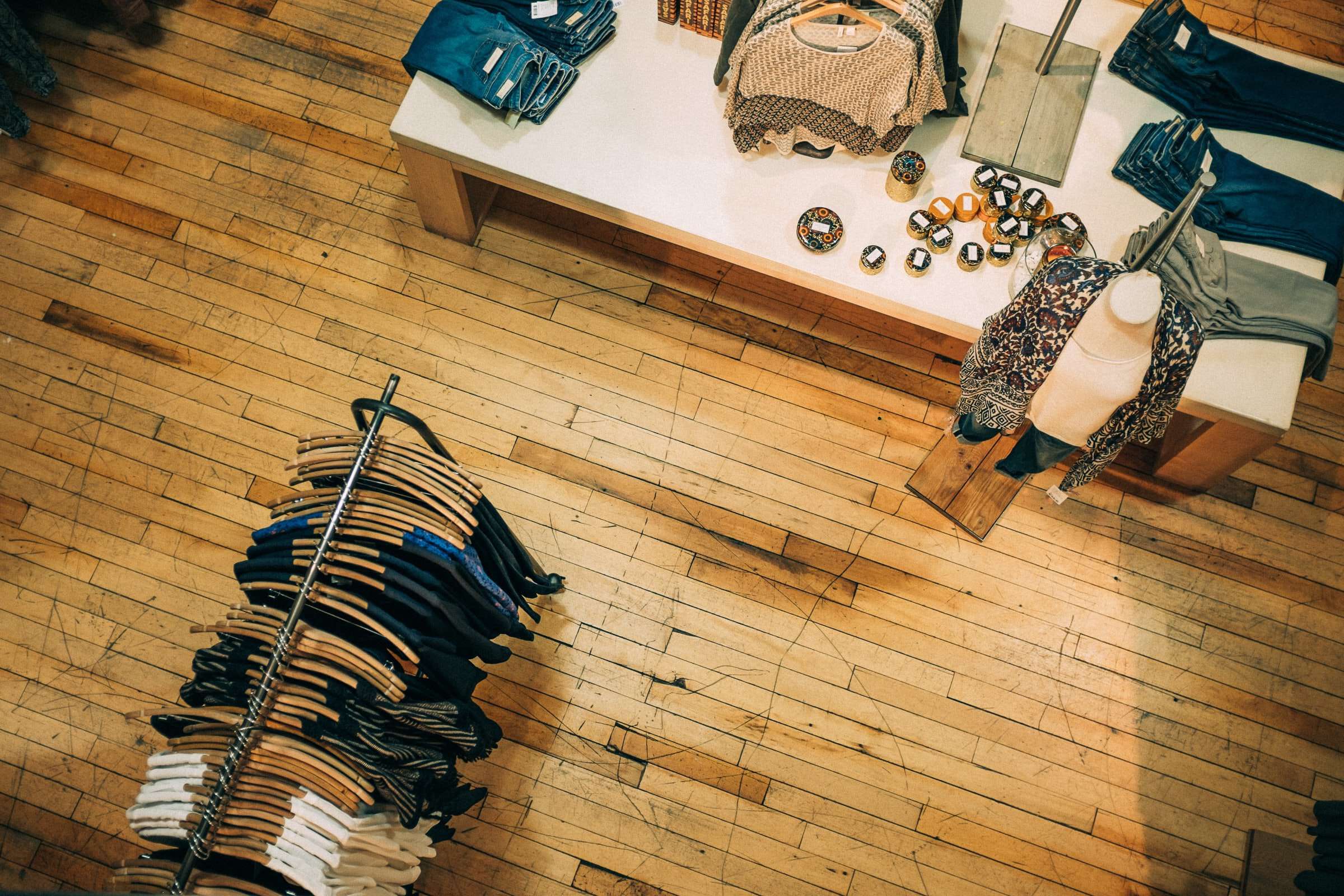
Prior to the coronavirus outbreak, the retail world was already shifting, adapting to a decrease in the traditional brick-and-mortar model. We’ve seen a contraction of the High Street in Britain and a massive reduction in mall square footage in North America. In order to attract new customers and enforce loyalty with shoppers, retailers turned to experience-rich environments replete with interactive in-store displays, Insta-ready moments, and community-focused events. According to one IBM projection from February of this year, brick and mortar stores were well on their way to becoming nothing more than showrooms where customers could try on a few key pieces, evaluate the physical quality of an item, make a selection, and have the goods delivered to their homes.
Current pandemic conditions didn’t change these trends — fewer shops, more online transactions, increased deliveries — but it has rapidly accelerated the rate of adoption of digital products. With waves of retailers closed for business completely, and consumer habits changing at a rapid pace, how can retailers lean into uncertainty and meet their buyers where they are?
At Formidable, our consultants work with a variety of retailers looking to innovate their practices, build loyalty, and create digital products that enable easier, seamless purchases as well as increase conversion rates. Many of these projects will also aid retailers in maintaining safe and sustainable business practices in a post-quarantine world. For instance, we’ve assisted a global fast-food provider by creating optimized customer order flows for all online food ordering channels. Rather than queue for meals in crowded lobbies, diners can place orders in advance via mobile or desktop for either pickup or delivery. Those who do walk in can easily use a digital kiosk to place and pay for an order, keeping both the customers and employees at a safe distance.
We’ve helped a global coffee chain in a similar fashion. Our client struggled to encourage its customers to explore their massive menu when ordering digitally. Formidable was brought in to conduct robust user research around how customers wanted their preferences displayed, and how they would prefer to inform the coffee retailer about their tastes, making it easier to complete their digital transaction, grab their coffee, and go.
For the same client, we also conducted a deep dive into whether devoted customers would be interested — and willing to pay for — curbside service and home delivery of their coffee products. Formidable built a user experience testing methodology to take customer temperature around the market, product, and technological expectations for the experience. As more restaurants will need to shift to alternative fulfillment methods to stay relevant until gathering restrictions are relaxed, evidence-based customer research will continue to inform the market winners in that shift.
If a retailer’s business wasn’t e-commerce ready before, it will need to be moving forward. While white-labeled apps will put a retail business online quickly, customized digital experiences are likely to be the most successful. Being able to browse stock, set up appointments to view/try products in-store, or employing AR/VR online so customers can “try before they buy” will be differentiators.

Larger enterprises have the fiscal advantage of deep pockets and are well-poised to weather an economic downturn. Their continued digital innovation initiatives are largely to thank. For one of our clients, a large retailer, we were tasked with designing a dashboard that would allow them to use AI, facial and product recognition, and a temporal interface to track the movement of products, people, and actions across a store to create a cashier-less experience. No-touch, cashier-less retail experiences will certainly persist, even for the sake of convenience.
For SME retailers, expensive solutions aren’t always viable. In this case, leaning on the robust and plentiful libraries of open-source software to innovate practices and products can be both helpful and provide quick wins. For many businesses, custom dashboards are the right move. Data visualization software, business intelligence dashboards, and charting libraries, like our own open-source Victory software, can help track brands, users, employees, locations, and even earnings at a granular level. This personalized intel can help retailers adapt to rapidly evolving consumer behaviors in an uncertain market.
Shoppers will return to physical locations, that’s a fact. How, when, where, and in what capacity remain the questions. We’re seeing a positive global shift in retail behavior that is likely to persist after relaxed social distancing, with consumers seeking convenience through digital browsing, home delivery, and easy payment systems. The pandemic has also adjusted consumers’ behavior on how they obtain both essential and non-essential purchases. Retailers tapping into these shifts, and embracing the technology to make them part of their models, will be ready to take advantage of buyer appetites when the quarantines are lifted, and beyond.




